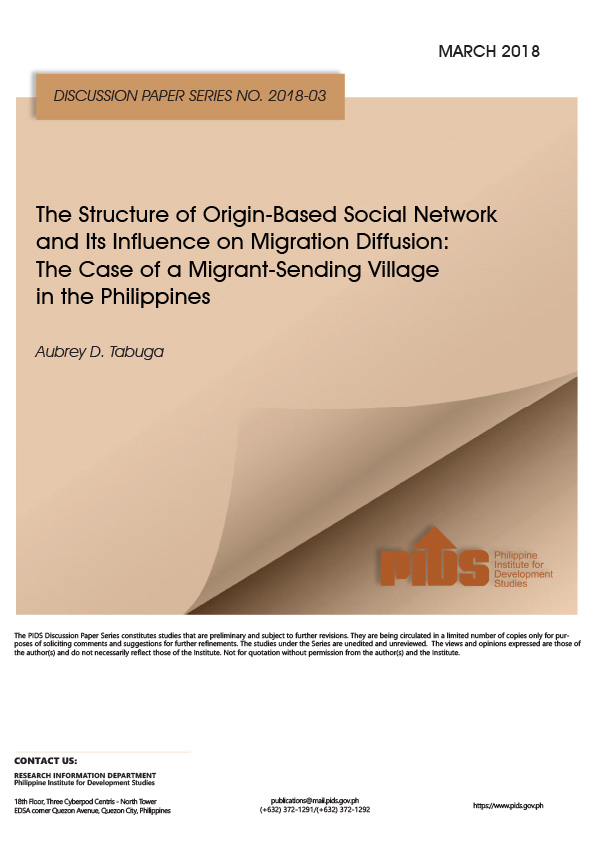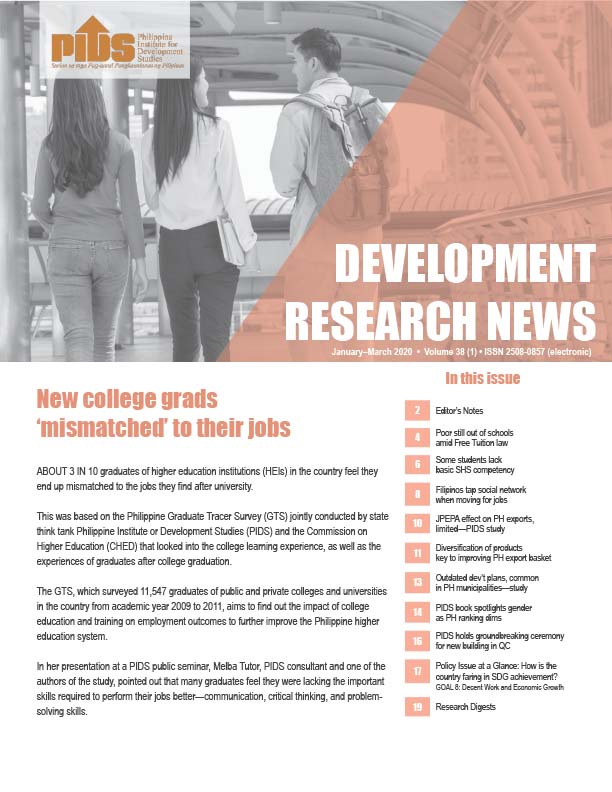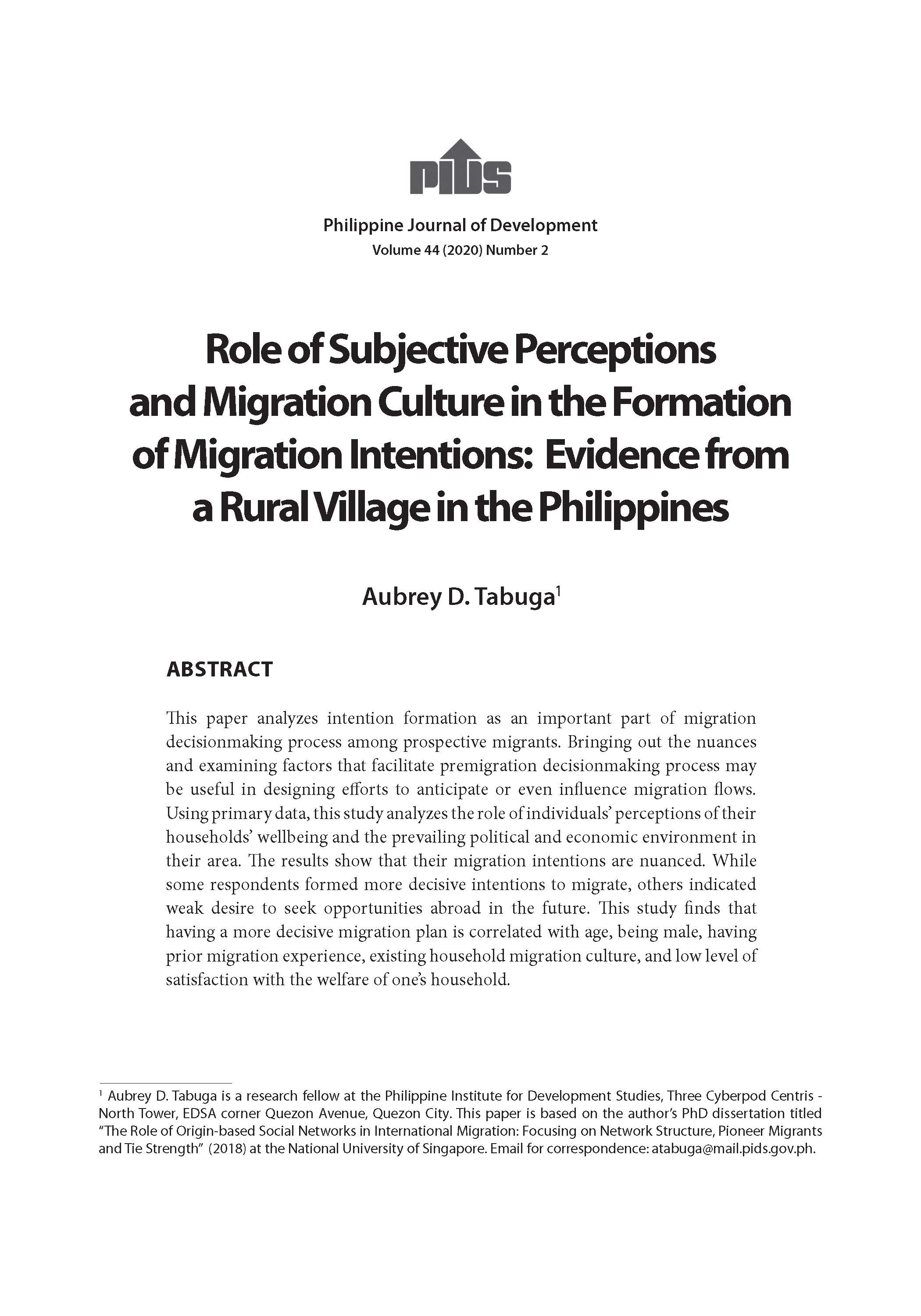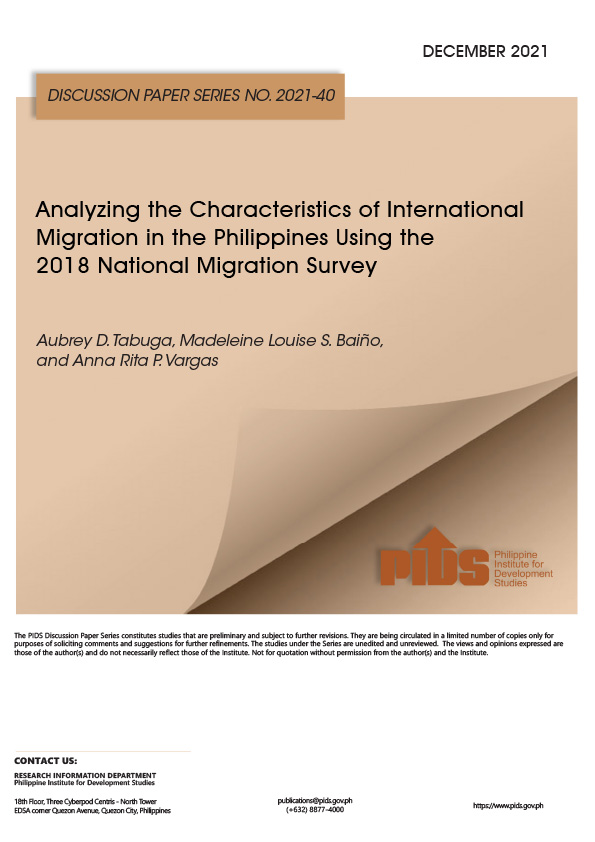While economic forces drive much of international migration, social factors are known to significantly facilitate movement. By providing information and other resources, networks reduce the cost and risk associated with international migration. The influence of migration networks, however, remains a black box that needs to be unpacked simply because these have been treated in the past mostly as unidimensional. In reality, however, networks do not only vary in type but also have structures. This study seeks to examine the structure of migration networks in a migrant-sending village in the Philippines. It also aims to relate this structure to the diffusion of migration behavior in the village over time through a socio-historical lens--an unconventional approach in the analysis of international migration perpetuation. Results show that the density of the kinship and friendship ties and the network position of pioneer migrants in the village affect the current distribution of migration behavior in the area. Know more about the factors affecting international migration structures in the Philippines through this paper.













